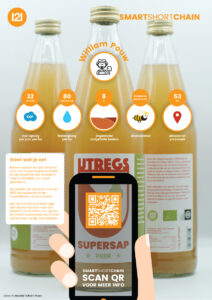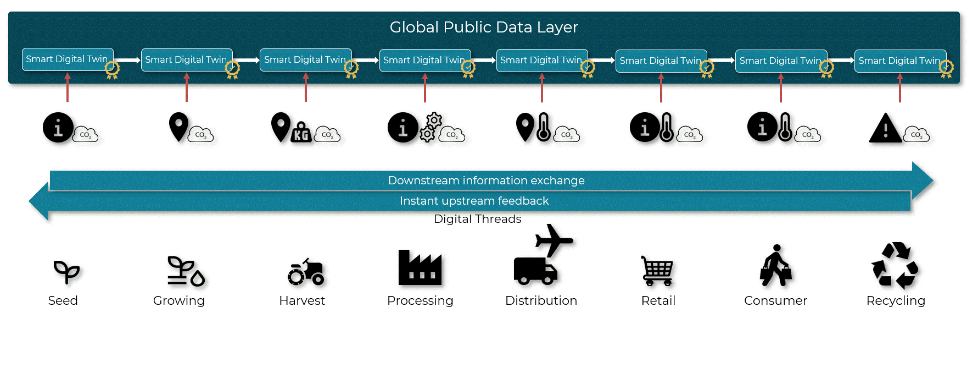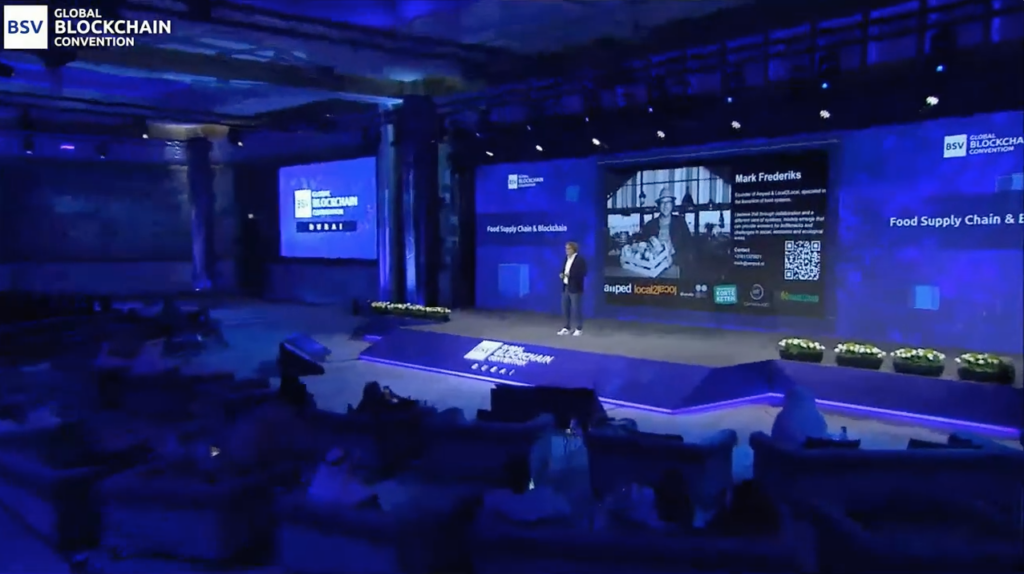SmartShortChain
Agriculture is in the midst of a transition, a transition to sustainable and resilient production, primarily focused on local and regional sales.
Our average meal covers a great distance, the revenues leave the region and the consumer doesn’t know what is going on with local farmers. This requires an intervention.
We want to connect the city with the countryside, connect citizens directly with farmers. Farmers provide more than just food production and citizens can and want more than just consume.
- The soil can store water
- The crops store and thrive on CO2
- The farmer maintains biodiversity
He can grow healthy products on healthy soil, local sales prevent unnecessary transport and revenues circulate longer in the regional economy. Of course we all want that, then why doesn’t this happen?
At the moment, the farmer is not rewarded for these added values and cannot invest in the soil. We can solve this with a 100% transparent short food supply chain. This way the farmer can show what he means to us, the chain can be traced from ‘soil to plate’ and we can pay him a fair price for product values that can be accounted for.
SmartShortChain
In collaboration with the Dutch ministry of agriculture (LNV) and Task Force Short Chain, Amped/Local2Local and FoodInsights developed a blockchain application in 2019-2020 that aimed to do just that: SmartShortChain (video).
Healthy, affordable and traceable food, a sustainable living environment, a future perspective for the farmer and a chain of trust between citizens and farmers.

A transparent food chain means that the product information is reliable, verifiable and that it is stored and transferred in a secure manner.
Utregs Supersap 2020 was the use case for the first phase of utilizing blockchain technology, implemented with Hyperledger and the product’s pricing and sustainability values were transparent and traceable, presented on the product page in the Local2Local-webshop.
Lessons learned
The SmartShortChain-project (2019-2020) provided us with insights regarding the opportunities and challenges of using blockchain in regional food systems, especially with regards to the consolidation of added value in the food chain. Hyperledger proved to be insufficient.

2021: UNISOT
Because of these learnings, Amped/Local2Local started a collaboration with the Norwegian company UNISOT in the last quarter of 2021 to work towards the integration of Local2Local’s operations and innovation ecosystem on UNISOT’s BSV-based platform. UNISOT’s proven track record in the food industry is SeaFoodChain.
UNISOT’s platform matches Local2Local’s impact strategy needs for transparency, scalability, stability, accessibility, costs, up- and downstream exchange and ownership.

2022-2023
Amped/Local2Local and UNISOT were speakers during the BSV Global Blockchain Convention in Dubai on May 25 2022. At the convention Amped/Local2Local and BSV announced their partnership.
Mark Frederiks presented Local2Local’s mission and the great potential of the roll-out of regional, regenerative food systems and the democratisation of food chains with blockchain.

The UNISOT-blockchain is currently integrated in the Local2Local e-commerce platform.